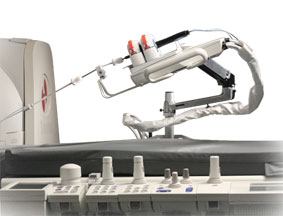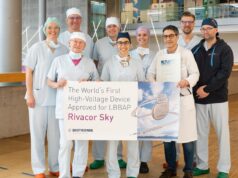
Stereotaxis is to present Niobe ES magnetic navigation system and supporting clinical evidence at Cardiostim-EHRA Europace 2016, taking place June 8-11 in Nice, France.
William C Mills, Stereotaxis chief executive officer, says, “This year, we have enhanced the ‘Stereotaxis experience’ for participants through a modelled beating heart phantom that enables them to see and feel the mechanics of our magnetic navigation and latest automation technologies around effective lesion creation, the benefits of which will be reinforced by expert users sharing their most recent clinical findings with our system.”
According to a press release, Stereotaxis will highlight the latest innovations to its Niobe ES system, including the next generation user interface, which includes new features such as improved catheter tip-to-tissue contact confirmation based on bipolar impedance information. The company will also share development progress for product enhancements related to ventricular tachycardia ablation, and unveil its newly developed software-based simulation platform for physician training.
On Friday, June 10, during a scientific session dedicated to remote magnetic navigation, several physicians representing the Society of Cardiac Robotic Navigation will speak to the role of the Niobe system in their EP practice. These include Philippe Ricard of Clinique Saint George in Nice, who will share new developments around ablation of atrial fibrillation using the Niobe system, and Dirk Bastian of Paracelsus Medical Center in Germany, which recently released study results demonstrating significantly reduced fluoroscopy times for patients undergoing ablation for
persistent AF with the Niobe system.
Additionally, Bruno Schwagten (ZNA Middelheim Hospital, Belgium) will share evidence of the Niobe system’s ability to reduce operator fatigue; Gery Tomassoni (Lexington Cardiology at Central Baptist, Kentucky) will present clinical benefits of the Vdrive robotic navigation system and its remotely directed disposables; and Tamas Szili-Torok (Erasmus Medical Center, The Netherlands) will provide a comparison of magnetic navigation and manual techniques in ventricular tachycardia ablation.









